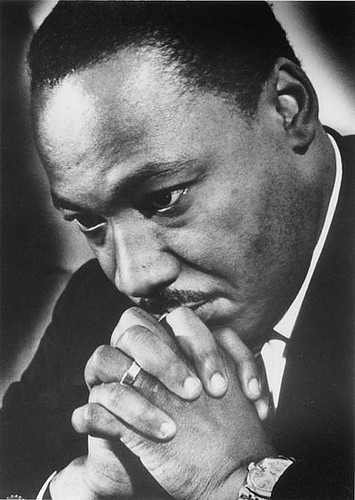 |
| Photo Credit: bjmccray |
Seeking Clarity in This Confusing Election Season: Ten Thoughts by Kevin DeYoung (The Gospel Coalition)
Many evangelical Christians find ourselves in a quandary as to whom should receive our vote for president this election, or even if we should vote at all. Pastor Kevin DeYoung offers some helpful things to consider.
It's Never Too Soon to Talk about Race in Your Church by Jemar Tisby (Christianity Today)
"I desire for churches that are predominantly white right now, but [are] looking to become more diverse, [to] do the groundwork first. You’ve got to pull the weeds. You’ve got to break up the soil. You’ve got to cultivate the land that would make it amenable to planting the seeds that would bear fruit of diversity. . . . The minority shouldn’t be the first one at your church to broach topics of race and diversity. That should’ve already been done by the leaders, and it should’ve been done in such a way that they’re shepherding the congregation through those issues."When Compassion is Exhausting by Melanie Dale (The Mudroom)
"But for our passions, for the things burning deep in our souls keeping us up at night moving us to tears liquefying our insides, it’s going to take more. It’s going to take partnering with really smart local people who have big plans for their own communities. It’s going to take lawyers and therapists and social workers. It’s going to take a lot. Which is why you can’t care about everything because the thing you need to care about the most needs your attention over the long haul. So find a thing and dig deep."InterVarsity Asks Staff to Choose a Stance on Sexuality by Kate Shellnutt (Christianity Today)
One of our partner ministries, InterVarsity Christian Fellowship, made the news this past week when the response to a 20-page paper on their theological beliefs on human sexuality was made known. A number of their staff members will be leaving IV as a result. Please be in prayer for both the leaders of InterVarsity and all the staff members affected.
What it Means to be Black in the American Educational System by Kevin O’Neal Cokley (The Huffington Post)
"The results of a recent survey by the Pew Research Center underscore this point. The survey found that black Americans with some college experience are more likely to say that they have experienced discrimination compared to blacks who did not report having any college experience. Additional survey results revealed several differences between blacks with college experience versus blacks without college experience. For example, in the past 12 months, 55 percent of people with some college experience reported people had acted suspicious of them, compared to 38 percent of those with no college experience. Similarly, 52 percent of people with some college experience reported people had acted as if they thought the individual wasn’t smart, compared to 37 percent of people with no college experience."Maps Shows History of US Immigration
The topic of immigration has been of great interest during this election season. This animated map from Business Insider illustrates immigration patterns to the U.S., including which countries were allowed to send people to the U.S. and when they were allowed to do so.



